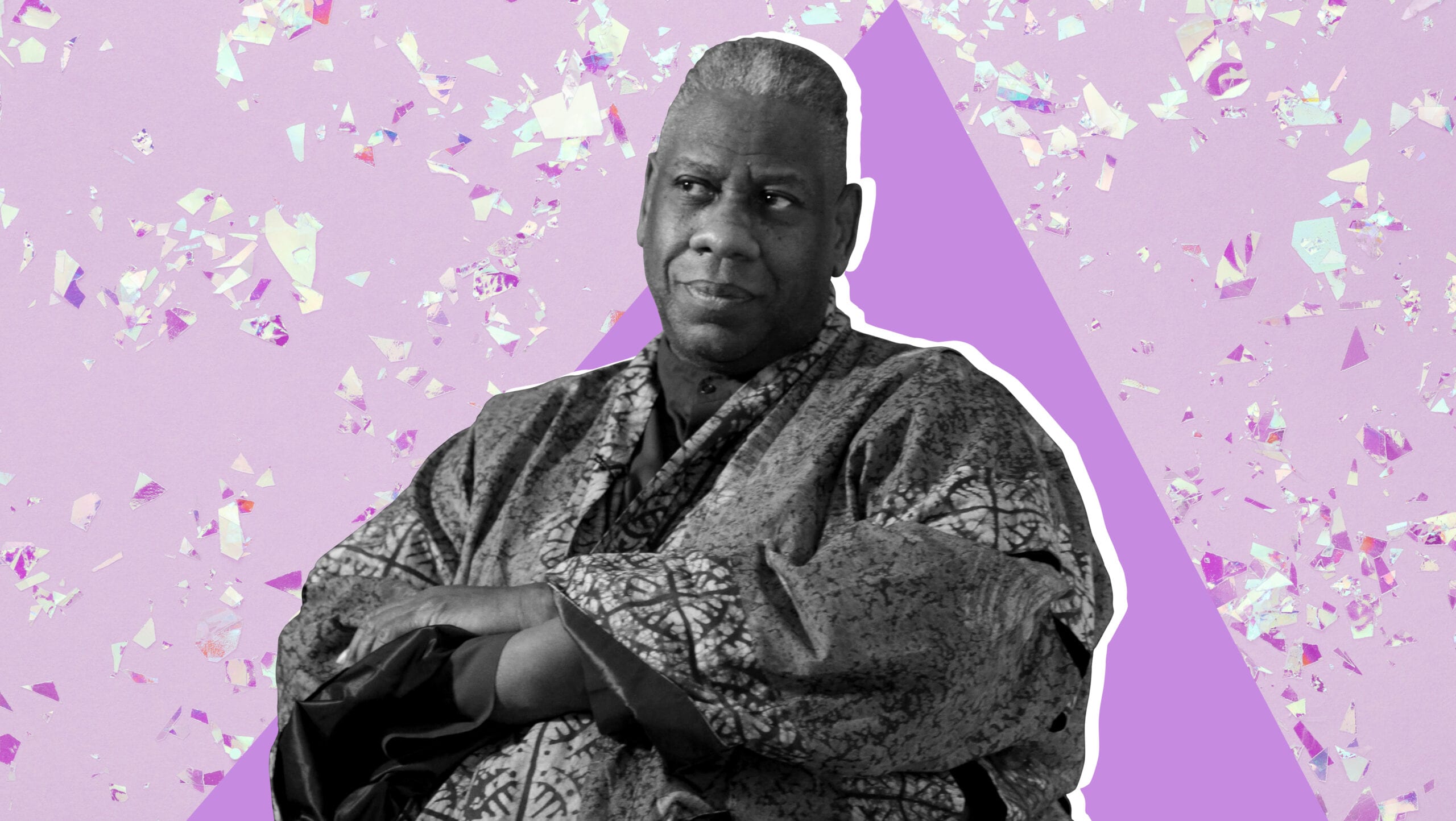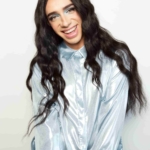Obsessions celebrates the pop culture fixations of queer, cosmically-destined BFFs Thomas Leblanc and Tranna Wintour, hosts of the CBC podcast Chosen Family.
As I’m sure you can guess by my name (a joke in homage to Vogue’s iconic and problematic editor-in-chief, Anna Wintour, that accidentally stuck) fashion, specifically the eccentric and over-the-top characters who populate the industry, are a subject of fascination for me. One figure who has always loomed large is the legendary André Leon Talley, one of the most important and influential figures in fashion for nearly five decades. Born and raised in the Jim Crow South, he made his way to New York City in the early 70s and quickly ascended the chiffon trenches (which is also the name of his new best-selling memoir), landing at Vogue in 1983. He would go on to spend 30 years there as creative director and editor-at-large and, unofficially, as Wintour’s right-hand man.
For all his time front and centre in the fashion industry, and despite his joyous, flamboyant presence, Talley remains a deeply self-protective and private figure. Over the last few years, though, a kind of vulnerability has revealed itself. In his memoir, The Chiffon Trenches, Talley publicly details, for the first time, the painful dissolution of his friendship with Wintour, who, after decades of collaboration and friendship, unceremoniously cast Talley aside. Talley writes that Wintour is simply “incapable of human kindness.”
The story went viral when it came out last month, mainly because it is rare for anyone in fashion to criticize the all-powerful Wintour—let alone someone who’s been by her side for over 30 years. And Talley’s accounts of offensive and derogatory behaviour by white media leaders has been amplified by many other editors and journalists of colour who are currently speaking out about their experiences in the industry. Earlier this month, amidst revelations of a toxic culture of racism and mistreatment at Bon Appétit, which, like Vogue, is published by Condé Nast, Wintour wrote a letter to Vogue staff acknowledging the racism there. “I want to say plainly that I know Vogue has not found enough ways to elevate and give space to Black editors, writers, photographers, designers and other creators,” she writes. “We have made mistakes too, publishing images or stories that have been hurtful or intolerant. I take full responsibility for those mistakes.”
The hurt that Talley expresses over Wintour’s treatment of him speaks to the fact that, while he owes much to her and publicly says so, she owes just as much to him and needs to publicly acknowledge that. There is no question that any spirit of inclusivity in the pages of Vogue under Wintour’s reign is the result of Talley’s influence, vision and perspective. He pushed the magazine forward and was its soul during its imperial phase. The story of Talley and Wintour serves as an example of a larger narrative in history: Of white people and white institutions exploiting Black talent, creativity and labour without fair credit or compensation.
Kate Novak’s 2017 documentary, The Gospel According to André, is a testament to Talley’s monumental contributions and achievements. But, more importantly, it attempts to reveal the real Talley, the person we’ve never gotten to see, and the painful challenges he must have faced in order to rise in the fashion industry as a gay Black man from the South. (The film is currently streaming on CBC Gem, which is free in Canada.)
Upon its release, the documentary received substantial criticism for being a superficial portrait that never goes deep enough into the important issues surrounding Talley’s life. In his brilliant piece “The Lonely Life of André Leon Talley Terrifies Me,” Michael Arceneaux writes: “One watches the film and can’t help but think of it as nothing more than a 94-minute Instagram post of self-aggrandizement.” Arceneaux points to several moments in the film where the director could have pushed further, especially in regards to Talley’s upbringing in the South and the racism he endured. “Maybe Talley didn’t want to answer some of those questions because he didn’t have the answer, but I wish his director had tried to pull them out of him. He is a walking Black history and Black queer history monument,” he writes.
I can’t disagree with Arceneaux and other critics. Sometimes it is frustrating that the film doesn’t go further than it does, but I do believe it is out of respect for Talley’s boundaries. Talley was raised by his adored grandmother who instilled within him a rigorous sense of discipline and a strict moral code. Talley talks about the idea of “being correct”—correct is a word he uses a lot, and it’s clear that “being correct” was a means of survival for his grandmother and himself in the face of racism. Novak does a good job of communicating Talley’s trauma and experience without requiring him to speak to it in detail.
There is a moment towards the end of the film when Talley describes an instance, many years ago, when a woman at the Yves Saint Laurent atelier used to refer to him by a demeaning name behind his back to other people in the industry. Recounting the story, Talley’s sadness is palpable. You can see in his body language that the hurt is something he continues to carry with him. It’s obvious that it’s not just about the woman at Yves Saint Laurent, it’s a collection of all the hurt he’s had to endure in his life and career.
Talley says he was “taught to rise above [racism],” and while he certainly transcended to the top of the fashion industry, the film suggests that maybe he hasn’t fully processed all he was forced to endure. His silence and his guardedness say everything that needs to be said. To me, The Gospel According To André is ultimately a story of survival. It is a story of the price of Black success in a white supremacist world—which often, tragically, includes silence.


 Why you can trust Xtra
Why you can trust Xtra


